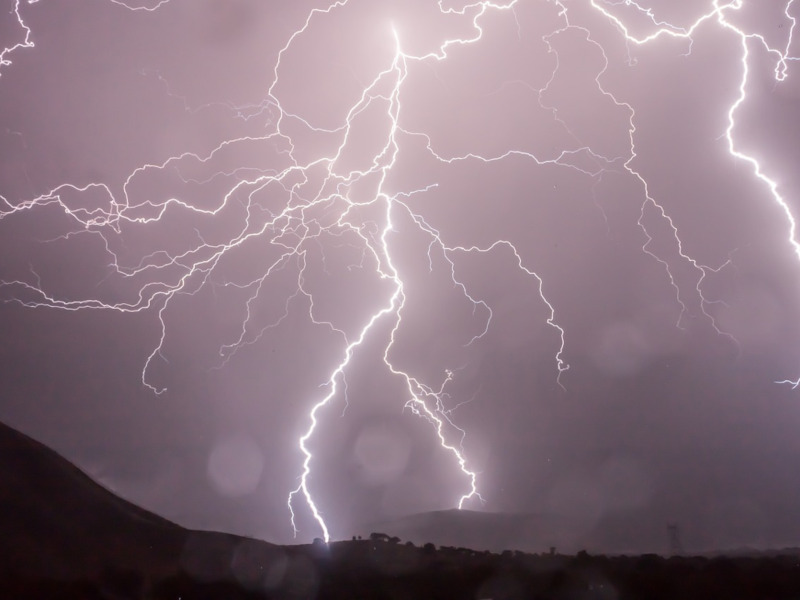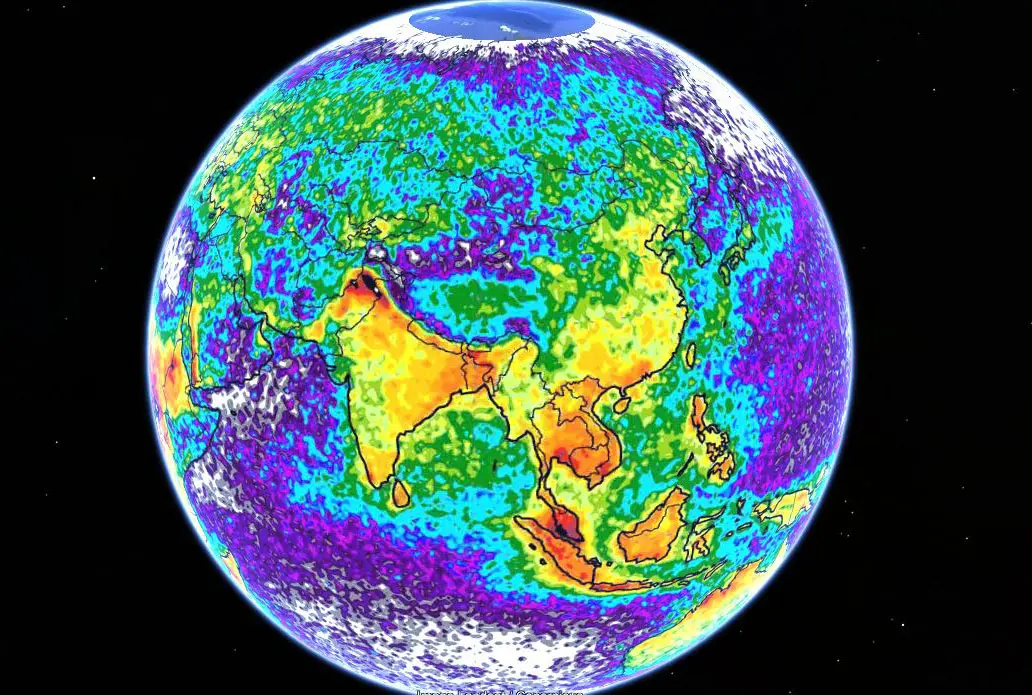In 2019, a record number of lightning discharges was recorded in Europe, in correlation with climate global warming. Unfortunately, lightning was back on the headlines again in 2020, in California during the month of August 2020 and in Australia in Nov – Dec 2020: in both cases, massive thunderstorms ignited destructive bush and forest wildfires. In less than 72 hours in California, more than 12 000 lightning discharges were recorded, triggering 650 wildfires in Norther California. These fires burned between 1,500,000 acres (6,100 km2) to 2,100,000 acres (8,500 km2) within a 2–3 week period.
A World Meteorological Organization (WMO) committee of experts has established in 2020 two new world records for the longest reported distance and the longest reported duration for a single lightning flash in, respectively, Brazil and Argentina.
- The world’s greatest extent for a single lightning flash is a single flash that covered a horizontal distance of 709 ± 8 km (440.6 ± 5 mi) across parts of southern Brazil on 31 October 2018. This is equivalent to the distance between Boston and Washington DC in the United States of America or between London and the border of Switzerland near Basel.
- The greatest duration for a single lightning flash is 16.73 seconds from a flash that developed continuously over northern Argentina on 4 March 2019.
Researchers at the Smithsonian Tropical Research Institute (STRI) in Panama have published a new research in Global Change Biology. They estimate that more than 100 million lighting strikes on land each year will radically alter forests and other ecosystems in the region between the Tropic of Cancer and the Tropic of Capricorn. Researchers estimated that lightning damages approximately 832 million tropical trees each year. Roughly a quarter of the trees probably die from their injuries. “This is the best evidence to date that lightning is a major disturbance influencing tropical forest dynamics and structure,” said STRI staff scientist and study co-author Helene Muller-Landau, “We suspect that our study vastly underestimates the total effect of lightning. Lightning strikes may play a major role in forest biomass/carbon cycling not only in tropical forests but also in other tropical ecosystems.”
Lastly, in Nov 2002, Arianespace unfortunately failed to launch Taranis satellite. Named after the French Gaulle lightning god, the satellite has been developed by the CNES (French Space Research Center) to study the electric phenomenon in the higher atmosphere and its relationships with thunderstorms.



